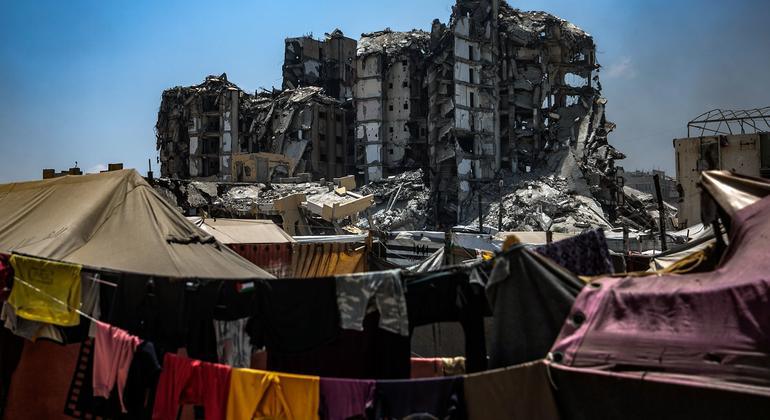Less than half of Gaza’s hospitals and less than 38 percent of primary medical care centers are partially operating, or do it at minimum levels, said Dr. Rik Peeperkorn, representative of the World Health Organization (WHO) for the West Bank and Gaza.
The occupation of the bed in the main facilities is exceeding the limits of large margins: the Shifa hospital has a capacity of 250 percent, Nasser with 180 percent, al-arntisi with 210 percent and al-Ahli with more than 300 percent.
Critical supplies that are exhausted
“The critical shortage of medicines and consumables continues and has only been exacerbated, with 52 percent of medicines and 68 percent of consumables in zero stock“Dr. Peeperkorn said journalists in Geneva, speaking from Jerusalem.
“Hospitals are particularly overwhelmed by the lesions of food distribution areas, which are also promoting the persistent shortage of blood and plasma,“He added, noting that since May 27, at least 1,655 people have been killed in those areas and more than 11,800 wounds.
The crisis has been exacerbated by displacement orders in the city of Gaza that now places its own warehouse in an evacuation zone. Hospitals, primary care centers and ambulance facilities are also within or near these areas, threatening more services in services.
Malnutrition worsening
Hunger and malnutrition are worsening quickly.
Since the beginning of 2025, 148 people have died from malnutrition, including 49 children, 39 of them under five years. Almost 12,000 children under five were diagnosed with acute malnutrition in July, the highest monthly figure to date, with more than 2,500 that suffer the most severe way.
New threat of meningitis
Disease outbreaks are added to pressure.
The alleged meningitis cases reached 452 between July and early August, the highest number since the climb began. Guillain-Barré syndrome, a rare disorder after infection, has also increased, with 76 suspicious cases since June.
Both conditions are more difficult to treat due to “zero actions” of vital medicines, including intravenous immuneoglobulin and anti -inflammatory, said Dr. Peeperkorn.
Access challenges
Access for international medical equipment and supplies remains an important obstacle.
Dr. Peeperkorn said international doctors face entry denials, while key articles such as the ICU team, anesthesia machines and cold chain supplies continue to be retained.
Although who managed to bring 80 medical supplies trucks since June, emphasized that the procedures are slow and unpredictable, with many denected or denied shipments.
“We need multiple crosses in open gaza, simplified procedures and the impediments of access raised,“He said.” We hear that more humanitarian supplies are allowed, but it is not happening, or is happening too slow. “




